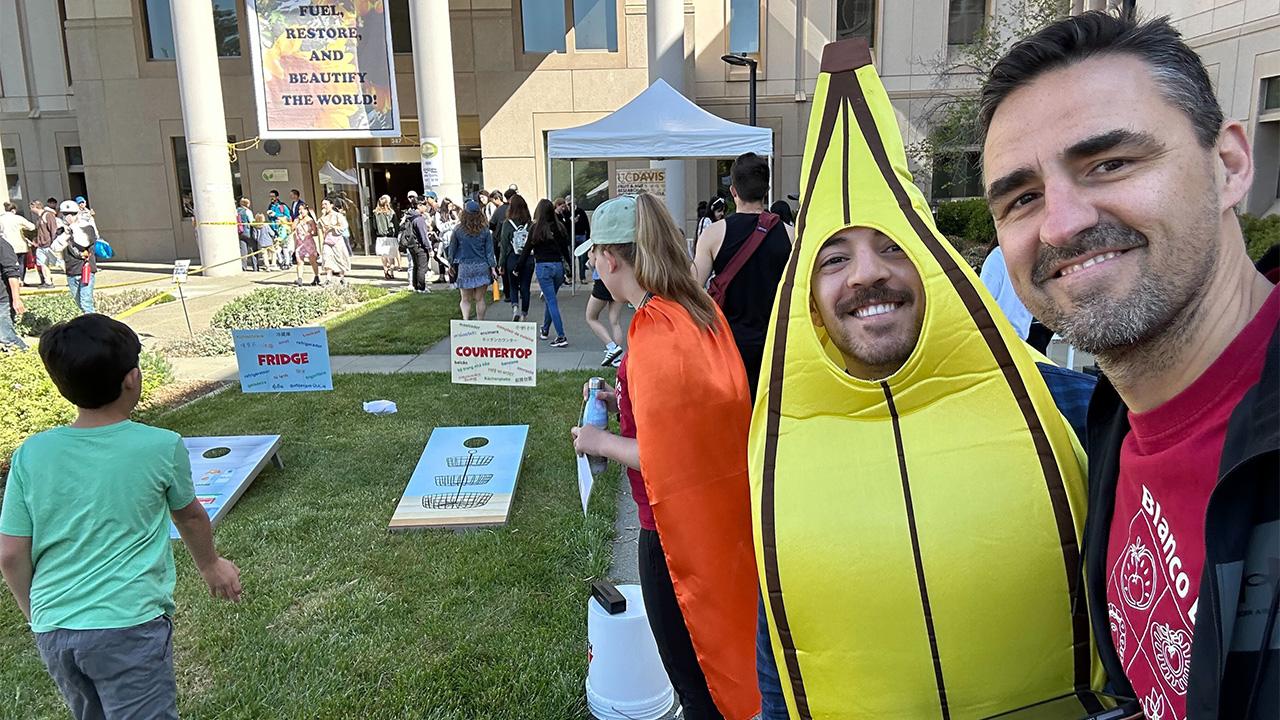
Produce Heroes say: "Save money by fighting food waste!"
You come home from the store with a bunch of bananas. Now, which is the better place to store them, on the counter or in the fridge?
Storing fresh produce correctly can save you money and time by keeping your tomatoes, grapes, broccoli and other fresh fruits and vegetables in tip-top condition for as long as possible.

And, your good practices will contribute toward solving global problems: About one-third of the food intended for Americans ends up wasted, according to the United States Department of Agriculture. Tossed food makes up about one-quarter of our garbage each year, creating greenhouse gases that add to climate warming – the equivalent of the emissions of 42 coal-fired powered power plants, according to the U.S. Environmental Protection Agency.
Our Produce Heroes can help you in this fight!
This corn-hole game will be featured during UC Davis Picnic Day, from 9 a.m. to 12 p.m. Saturday, April 20, in the PES courtyard.
“We will have two cornhole boards set up, representing either storage in the refrigerator or on the countertop,” explained Christian Preston Rubio, a graduate student in the lab of postharvest expert Bárbara Blanco-Ulate. “Players will have a variety of beanbags with images of fruit and vegetables on them, and they will throw the beanbags toward the fridge or countertop boards.
“Players will score points for correctly choosing the proper storage method,” Preston Rubio added. “They’ll win extra points if they toss the beanbag through the hole. We’ll hand out stickers as prizes, and best of all, players will learn how to store their produce by playing our game.”
So fight waste and learn how to not toss good produce during Picnic Day!
Postharvest quality a focus since the beginning
Since our very earliest days at UC Davis nearly 120 years ago, scientists have looked for ways to maintain and improve the quality of fruits, vegetables and grains after they are harvested. In 1977, Adel Kader founded the Postharvest Center to take the research to a higher level. Now co-directed by Blanco-Ulate, the center and associated researchers are learning more about optimal storage methods at home, in grocery stores and warehouses. In addition, they're seeking ever-better ways of controlling the bacteria, viruses, mold, physical damage and storage conditions that can cause produce to deteriorate after being harvested. Even plants' genetic make-up can affect how produce responds to conditions after harvest, and researchers are studying that, too.
Our Produce Heroes exhibit brings some of that research to the public. You can find more information about our work in the Blanco-Ulate Lab and at the UC Davis Postharvest Research and Extension Center.
Media Resources
- Trina Kleist, UC Davis Department of Plant Sciences, tkleist@ucdavis.edu, (530) 754-6148 or (530) 601-6846
